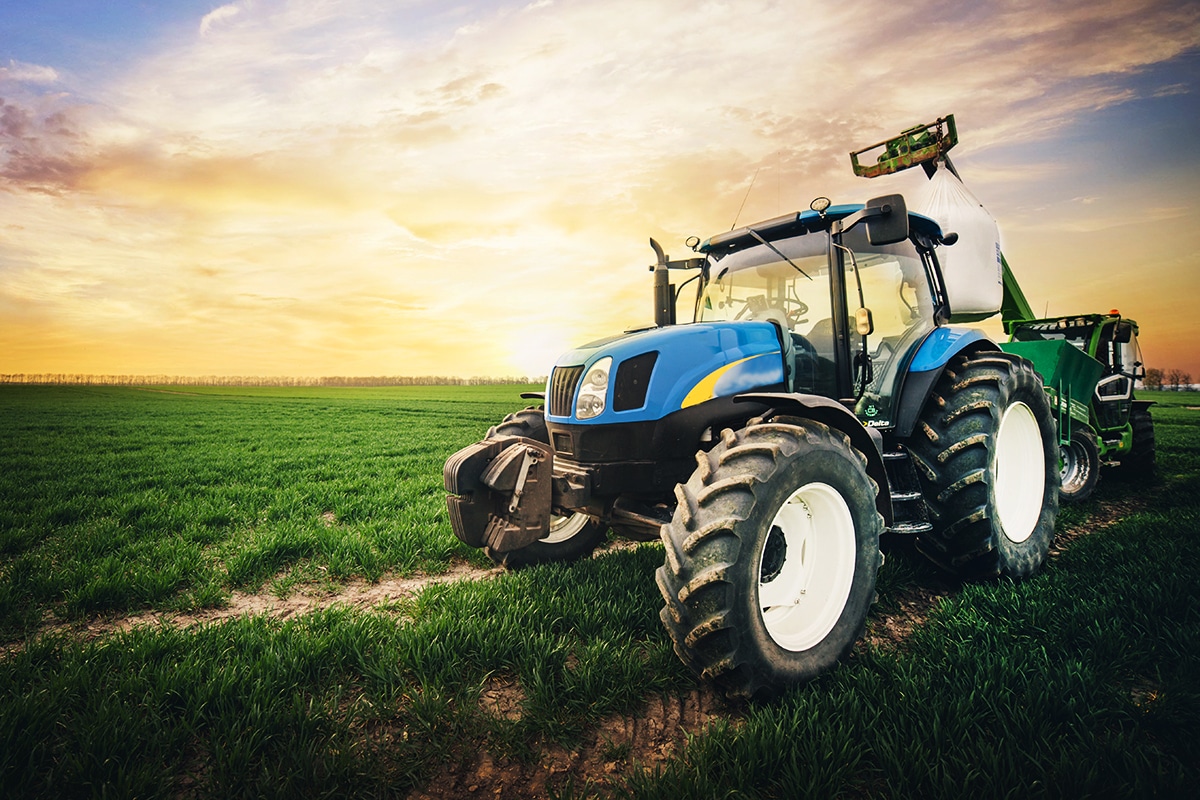Farming is one of the most important activities that contribute to society’s growth and development. It is the backbone of many economies worldwide, providing raw materials for various industries, including food production. One of the essential tools for farmers is a tractor. It is an indispensable piece of equipment that makes farming activities easier, faster, and more efficient. In this article, we will dive into the modern equipment available to farmers and how they can power their farming dreams with the incredible efficiency of modern tractors.
The Role of Tractors in Farming
A tractor is a vehicle that is specifically designed for farming applications. Tractors are used for various agricultural activities, including tilling, planting, plowing, and irrigating crops. Its primary purpose is to reduce the time and effort required for farming and improve crop production yields.
Tractors come in various sizes and types, including utility, row-crop, and compact. They all have their unique capabilities and specifications. The choice of which type of tractor to use depends on the farmer’s needs, budget, and the size of the farm.
How Modern Tractors are Powering Farming Dreams
The agricultural industry has seen significant advancements in technology over the years. The introduction of modern tractors has revolutionized the way farmers manage their farming activities. Modern tractors come with a wide range of features and capabilities that make farming easier, faster, and more efficient. Here are some of the benefits of modern tractors.
Efficient Fuel Consumption
Modern tractors come with highly efficient diesel engines that consume less fuel. The fuel efficiency of modern tractors is due to the technological advancements in engine design. This technology ensures that tractors can operate effectively without using excessive amounts of fuel. By consuming less fuel, farmers can save on production costs, making farming more affordable and profitable.
Comfort and Ergonomics
Modern tractors are more comfortable and ergonomic compared to older models. Manufacturers have incorporated features such as climate control, comfortable seats, and adjustable controls. These features enable farmers to work longer hours without getting fatigued, which ultimately enhances productivity.
Advanced Technology
Modern tractors come with advanced technology features, such as GPS mapping and auto-steer. These features enable farmers to optimize fieldwork by controlling soil treatment, seeding, and fertilizing within a particular field. Additionally, tractor sensors can help collect data that helps the farmer optimize operations, saving time and resources.
Enhanced Precision
Modern tractors are equipped with advanced tools, including guided steering, precision-seeding, and fertilizing mechanisms. These tools offer precise application of products and promote accuracy and consistency in farming activities. Precision farming, driven by the use of advanced tractors, promotes greater efficiency, time management, and yield improvements.
Tips for Choosing the Right Tractor
Choosing the right tractor is essential in achieving the desired results for your farming activities. Here are some tips to consider when selecting the right tractor.
Farm Size
The size of your farm influences the type of tractor to choose. For smaller farms, compact tractors are suitable, while row-crop tractors are ideal for larger farms. Investing in large equipment for a smaller operation can be cost-prohibitive, impacting profitability.
Intended Use
The activities you intend to accomplish with your tractor should also inform the type of tractor to purchase. A utility tractor can handle versatile applications, while a specially designed row-crop tractor is best for field and row crop farming.
Budget
The cost of the tractor should be within your budget. Consider financing options that make the purchase easier. Always ensure you have requirements and specifications in mind that align with the farm’s objectives and budget.
Regular Maintenance for Maximum Efficiency
Regular maintenance increases uptime, productivity, and the lifespan of tractors. Here are some useful tips for proper tractor maintenance.
Cleaning
Proper cleaning of tractors helps to prevent mold, mildew, and other issues that decrease efficiency. It also removes corrosive chemicals, which can degrade tractor parts. Ensure you clean your tractor after every use as part of routine maintenance.
Lubrication and Fluid Changes
Lubricating the tractor’s moving parts helps minimize friction and protect the equipment from damage. Regular fluid changes also help keep the tractor operating at peak efficiency.
Tire Maintenance
Proper tire maintenance helps to prolong their lifespan and ensure the tractor operates smoothly. Implement regular inspection intervals for the tires, and replace anything visibly compromised or worn.
The Future of Tractor Technology
The use of modern technology in tractors has led to significant advances in farming efficiency. Looking forward, the future of tractor technology will continue to address the challenges posed by the agricultural industry. Manufacturers are already developing tractors that use renewable energy, such as biofuels. New materials and designs will offer opportunities to improve fuel efficiency while reducing the environmental footprint of tractors.
Conclusion
As the agricultural industry continues to grow, modern tractors are becoming vital tools for farmers. Modern tractors enable farmers to maximize efficiency, reduce expenditures and increase productivity. When selecting the right tractor, farmers must consider their budget, farm size, and intended use. Regular maintenance also plays a critical role in ensuring the equipment operates at peak efficiency. As technology advances, the industry looks forward to the development of advanced materials, designs, and renewable fuels, making tractors more efficient, productive, and eco-friendly.

Deja una respuesta